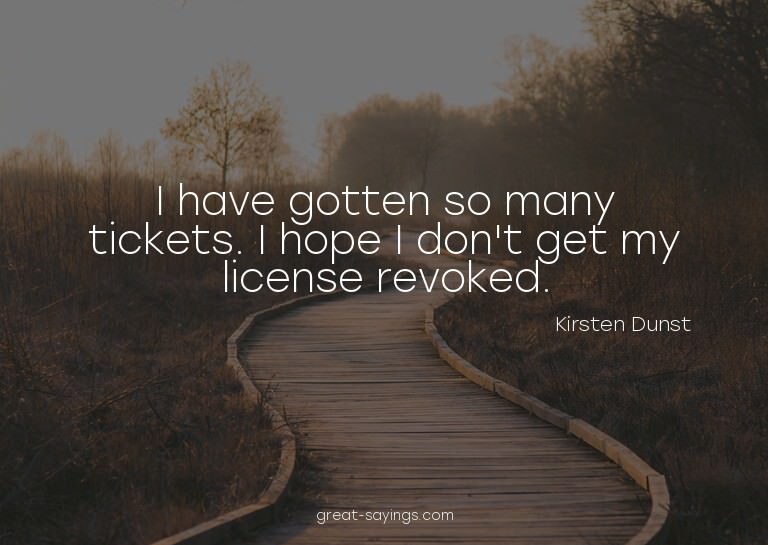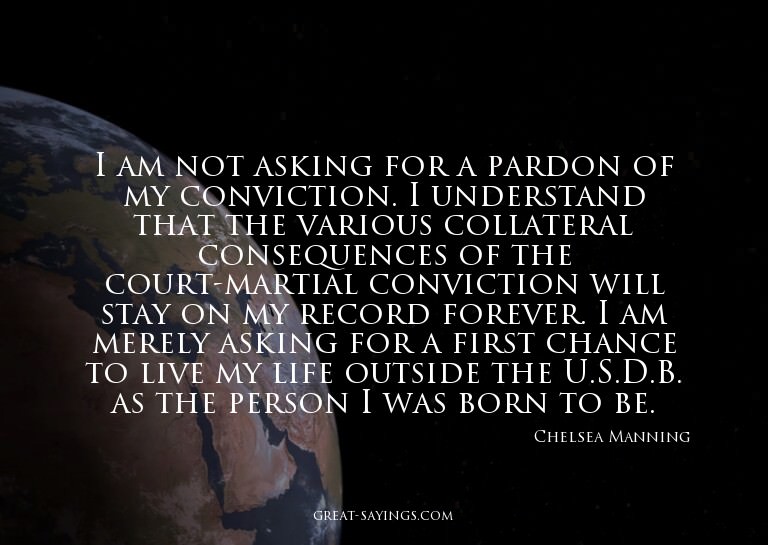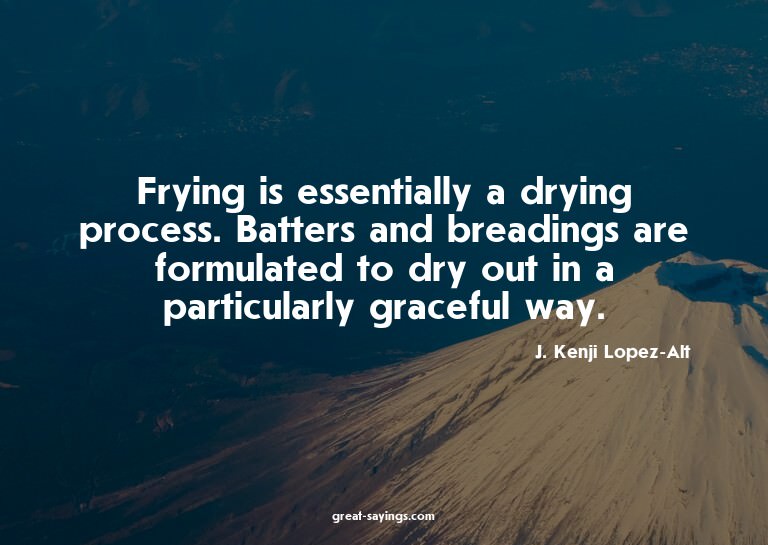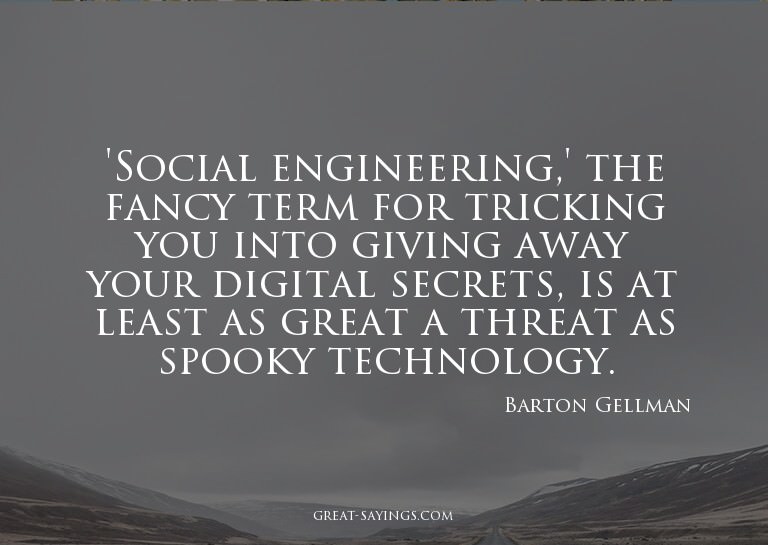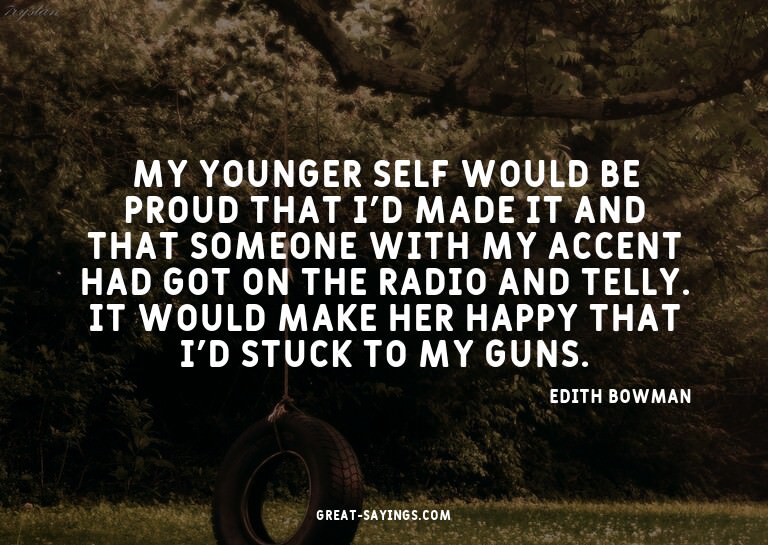Words matter. These are the best Manuscript Quotes from famous people such as Nicholas Meyer, Jess Walter, Lionel Shriver, Robert Gottlieb, Dorothea Dix, and they’re great for sharing with your friends.
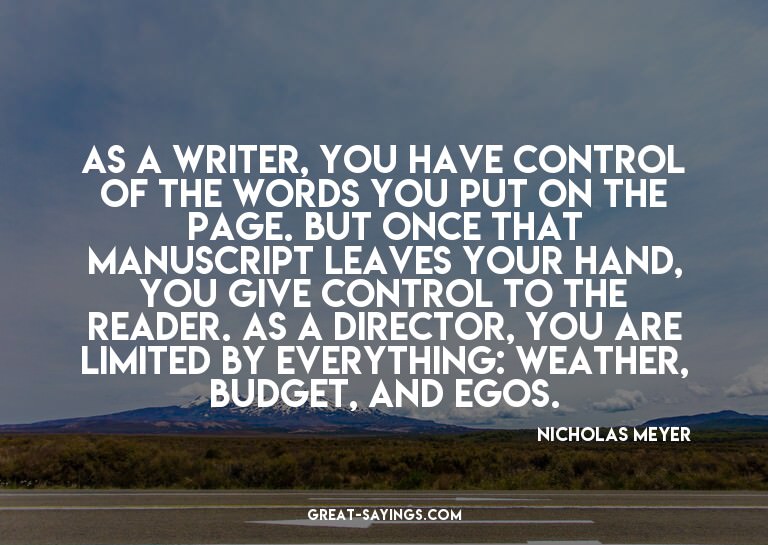
As a writer, you have control of the words you put on the page. But once that manuscript leaves your hand, you give control to the reader. As a director, you are limited by everything: weather, budget, and egos.
I wake at 5 or 5:30 most mornings, make myself a latte and grab a cookie, write until 10 or 11, go have my favorite meal, ‘second breakfast,’ or grab coffee with friends, or play basketball. Then, around noon, I begin apologizing via email for the manuscripts I can’t get to.
A manuscript under way always gave me something to do; only while enduring the aimlessness between books was I truly glum.
I can almost always read a new manuscript overnight.
Think how slow would be your progress in learning without printed books: you could study only manuscripts, and those necessarily must be very few in number. Learn from this to value your books, and always handle them with care.
I had already drafted the manuscript that would become my first book by the time I graduated from college, but I had no idea what to do with it.
Sometimes I write less than I’d like but do research. Other times, editor’s notes or a copy-edited manuscript or page proofs for a forthcoming novel mean that I need to put my attentions elsewhere for a day or two, but I always come back to writing.
Your manuscript is both good and original; but the part that is good is not original, and the part that is original is not good.
I teach one semester a year, and this year I’m just teaching one course during that semester, a writing workshop for older students in their late 20s and early 30s, people in our graduate program who are already working on a manuscript and trying to bring it to completion.
Instead of taking a year off, I started ‘Dreamers of the Day’ exactly 36 hours after I sent the manuscript for ‘A Thread of Grace’ to the publisher!
When you hear composer, you think, like, Beethoven: guy in a powdered wig, at a piano, furiously scribbling on manuscript paper. That’s not the only image that a composer should bring up, you know. But that’s kind of what we’ve said it is.
An author’s ability to bring a marketing synopsis to the table – along with a great manuscript – makes a difference in what books get picked up. This is true for both fiction and nonfiction titles. You need to show your publisher what you’ve got in your marketing arsenal.
The Bodleian Library, next to the Sheldonian, is one of the great libraries of the world. As well as holding most of the books printed in England since the first quarter of the 17th century, it houses priceless printed texts, manuscripts, and collections.
Movable type seemed magical to the monks who were illuminating manuscripts and copying texts. Certainly e-books seem magical to me.
And, finally, Lincoln was not a good impromptu speaker; he was at his best when he could read from a carefully prepared manuscript. Though maybe a teleprompter could have helped that!
I starved and slept on park benches. I wrapped myself in the pages of my manuscript to keep warm. For two and a half years I took odd jobs; nothing was going to deter me.
A novelist can never be his own reader, except when he is ridding his manuscript of syntax errors, repetitions, or the occasional superfluous paragraph.
I outline fairly extensively because I’m usually dealing with real events. I don’t need to give myself as much information as I used to, but I still like to have two pages of outline for every projected 100 pages of manuscript.
Books can now be on the stands within days from delivery of a formatted manuscript, and often are.
Write a lot. And finish what you write. Don’t join writer’s clubs and go sit around having coffee reading pieces of your manuscript to people. Write it. Finish it. I set those rules up years ago, and nothing’s changed.
The most painstaking phase comes when the manuscript is set in ‘type’ for the first time and the first proofs of the book are printed. These initial copies are called first-pass proofs or galleys.
Agents are essential, because publishers will not read unsolicited manuscripts.
I get like a melody that comes up and I try to write it down or record it. Hum it into a tape recorder or write it down on some manuscript paper. It could happen at any time, on the road or off the road, but mostly, you know, at home.
One of my graduate school professors, to whom I started sending poems when I started writing again after a 10-year hiatus, suggested I prepare a book manuscript which he could send to publishers for me.
Sometimes I have given my husband a manuscript to read that has turned out to have fantastic rave reviews and he’ll tell me it is no good. Well, if I didn’t know him as well as I know him I would be terribly depressed.
I began writing ‘Matterhorn’ in 1975 and for more than 30 years I kept working on my novel in my spare time, unable to get an agent or publisher to even read the manuscript.
I remember going over proofs of this book – my first book – back in 2001, in a bar in Toronto called the ‘Victory Cafe’, and thinking sadly to myself, ‘This is a very good manuscript but not a very good book.’ I don’t know what I meant by that, but I was pretty heartbroken and sure it was true.
I was born in 1943 at Neston in the Wirral, not far from Liverpool where my father, Richard William Hunt was a lecturer in paleography, the study of mediaeval manuscripts.
Books were a huge part of my childhood growing up. We would go on vacation, and my mom was always carting manuscripts around.
Even in a manuscript form, ‘The Girl on the Train’ sort of leapt off the pages as a contemporary suspense drama-slash-thriller. It has all the mechanics of a thriller, but at the heart of it was a great character study.
I was eighteen when I wrote my first book, and I can’t remember what it was called. I have no idea where the manuscript is – I lost it when I was twenty-one.
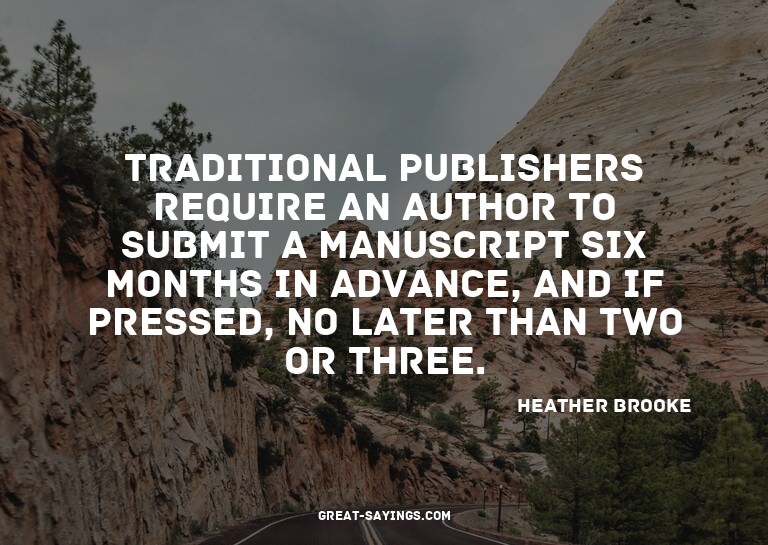
Traditional publishers require an author to submit a manuscript six months in advance, and if pressed, no later than two or three.
I’ve tried to slow this down but realized that my natural reading rhythm is freakishly fast when an author friend asked me to go through the manuscript of her soon-to-be-published book for continuity errors.
My study is a converted garage which is largely lined with bookshelves and cardboard boxes filled with manuscripts of my film scripts, plays and books.
I basically wrote five books with ‘Night Soldiers,’ called them novellas, and came in with a 600-page manuscript.
I became a connoisseur of that nasty thud a manuscript makes when it comes through the letter box.
A typical agent in New York gets 400 query letters a month. Of those, they might ask to read 3-4 manuscripts, and of those, they might ask to represent 1.
Usually, an author writes a manuscript that is handed in to the editor. The editor will then work with an art director to find just the right illustrator for the job, and off they go. Many times, the illustrator and author never meet.
When I began writing in the mid-1960s, I thought it was not important for readers to know whether I was male or female. Also, I was a great admirer of E.B. White, so I may have thought that it would bring me luck to submit my first manuscript as ‘E.L.’ But if I were starting out today, I would use my first name.
So: we’re all tired. Now what? Manuscripts written in Club Med?
I thought it was amazing to work with authors, to get a manuscript and try to make up a cover for it.
I am the luckiest novelist in the world. I was a first-time novelist who wasn’t awash in rejection slips, whose manuscript didn’t disappear in slush piles. I have had a wonderful time.
My three years at the NIH were critical in my scientific education. I learned an immense amount about the research process: developing assays, purifying macromolecules, documenting a discovery by many approaches, and writing clear manuscripts describing what is known and what remains to be investigated.
I’ve seen unpublished manuscripts where the writer doesn’t know they are making fun of the villain – but they are. If you aren’t afraid of your villain, how can your hero be afraid?
The usual way – through a long series of rejections, revising my manuscripts, and kept trying again and again. Finally I was fortunate enough to find a good agent.
I score everything by hand on manuscript paper and then make copies.
Recently, I looked back at my first manuscripts and was struck by the lack of space, of breath. That’s exactly how it felt, back then… like I was suffocating.
Of course, authors can still burn their manuscripts – but once something is out in the world, especially if it ever saw the digital light of day, it’s harder and harder to call it back.
I wanted to write something visual that I could read to the children. This was when I created the idea of Redwall Abbey in my imagination. As I wrote, the idea grew, and the manuscript along with it.
If you look at an illuminated manuscript, even today, it just blows your mind. For them, without all the clutter and inputs that we have, it must have been even more extraordinary.
You have to avoid what I call the ‘smartest boy in class syndrome,’ which is, just because you know it, you don’t have to tell it. I often will go through a manuscript crossing stuff out, and say, ‘This is just too much,’ you know?
Pages: 1 2






